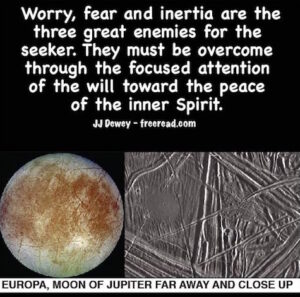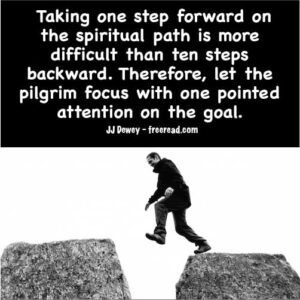
The Life Within
“He that hath an ear, let him hear what the Spirit saith unto the churches; To him that overcometh will I give to eat of the hidden manna, and will give him a white stone, and in the stone a new name written, which no man knoweth saving he that receiveth it.” Rev 2:17
Notice that even though this message is written specifically to Pergamos, the letter is also written to “the churches.” All the letters do the same thing: they give a specific message to one body and then ends with the reminder that in reality the message applies to all.
What is the reason behind this?
To understand, visualize a father giving instructions to seven children. The first child may show some artistic promise, so he praises him for his talents and encourages him to develop them. He caught him stealing some money one day, however, so he tells him to not steal, for you reap what you sow.
Then the Father ends these instructions, which, in particular applies to his firstborn, with the injunction, “I say this to all because all can benefit.”
Similarly, each of these letters have special meaning to seekers on a certain stage of the Path, but all can benefit from them.
“To him that overcometh will I give to eat of the hidden manna.”
Seven times in the letters to the churches the word “overcometh” is used. In other words, there is no such thing as a free lunch even from God. To obtain the great rewards, we must overcome great obstacles. In fact, we could say that each of these seven letters represent seven hurdles that must be overcome and the rewards for accomplishing this.
In the Pergamos stage he receives several rewards for following the advice of the Inner Voice.
The first is that he will eat of the hidden manna.
The interesting thing about the use of the word “manna” is that this substance just seemed to magically materialize from heaven and fed the Israelites in the wilderness for 40 years. The source of it seemed to be hidden.
In addition, the Jews kept a sample of the manna which was hidden and is said to still exist somewhere.
But then Jesus spoke of even more esoteric manna:
“Our fathers did eat manna in the desert; as it is written, He gave them bread from heaven to eat. Then Jesus said unto them, Verily, verily, I say unto you, Moses gave you not that bread from heaven; but my Father giveth you the true bread from heaven. For the bread of God is he which cometh down from heaven, and giveth life unto the world.
“Verily, verily, I say unto you, He that believeth on me hath everlasting life. I am that bread of life. Your fathers did eat manna in the wilderness, and are dead. This is the bread which cometh down from heaven, that a man may eat thereof, and not die. I am the living bread which came down from heaven: if any man eat of this bread, he shall live for ever: and the bread that I will give is my flesh, which I will give for the life of the world.” John 6:31-33 & 6:47-51
The hidden manna is the Christ, and it is given to us through the giving up of the flesh. What does this mean?
There is the consciousness of Christ within us all, and we attain that oneness with the inner Christ through the sacrifice of the “flesh” or lower carnal self. When the lower self can no longer hold us earthbound, we are fed by the spirit of the inner Christ and have eternal life. This does not mean we will live forever in the same body, but it does mean that we will have continuity of consciousness as we go from life to life, sphere to sphere, where we will have one continual eternal life and find joy therein.
Finally, the Master says he “will give him a white stone, and in the stone a new name written, which no man knoweth saving he that receiveth it.”
In ancient times people carried with them stones with the name of their god written upon it. This was supposed to give the wearer power to use that name to call upon his god.
A stone is also a symbol of the Christ within the scriptures. So what are we being told here?
He that overcomes the lower nature will be given continual communion with the Christ within. The new name will be a new approach to contact the Inner Voice. The seeker will no longer call upon the names of outer authorities to learn the will of God. Instead, he will call upon the new name within his own being, which is one with his higher consciousness.
The Ray of Pergamos
At Stage Three, the seeker in Pergamos is governed by Ray Four, The Ray of Harmony through Conflict. In this stage the aspirant dwells in the midst of those “where Satan’s seat” is, and is surrounded by those who entertain the doctrine of Balaam. He encounters great conflict but if successful the end is harmony and better judgment.
Sometimes the cure for restlessness is rest. Colleen Wainwright, Commun
Jan 16, 2007
Easy Access to All the Writings
For Free Book go HERE and other books HERE
JJ’s Amazon page HERE
Check out JJ’s Facebook Group HERE
Follow JJ on Twitter @JosephJDewey HERE
Check out JJ’s videos on TikTok HERE





